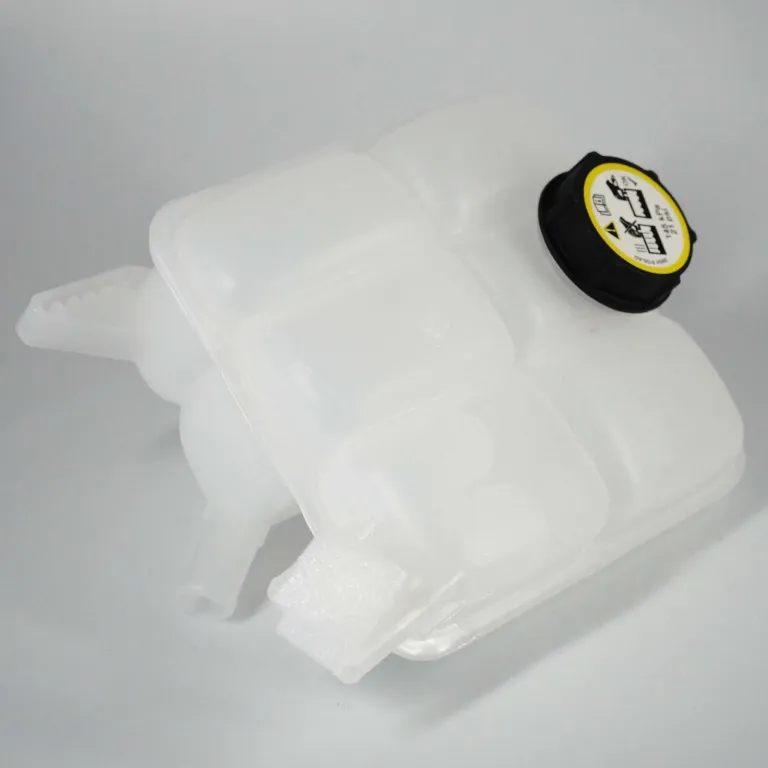Understanding the results of a blood analysis is crucial for maintaining optimal health. However, interpreting these results can often be a daunting and confusing, especially for those living in Melbourne. With numerous factors like lifestyle, genetics, and environment affecting our blood composition, it’s important to thoroughly understand the analysis to make informed decisions about our health. In this blog post, we will provide some tips and insights on mastering the art of interpreting blood analysis Melbourne. So, let’s dive in and equip ourselves with the knowledge to take control of our health!
Understanding the Basics of Blood Analysis
Blood analysis is a fundamental tool in assessing our overall health. By examining various components in our blood, such as red and white blood cells, platelets, and plasma, healthcare professionals can gain valuable insights into our body’s functioning. This information helps diagnose and monitor conditions like anemia, infections, and hormonal imbalances, among others. To understand the basics of blood analysis, knowing what each component signifies is important.
Red blood cells carry oxygen throughout the body, while white blood cells are responsible for fighting infections. Platelets help in blood clotting, preventing excessive bleeding. Plasma, the liquid part of the blood, contains vital proteins, hormones, and other substances. Blood analysis provides measurements of important factors like cholesterol levels, blood sugar, and kidney function. These parameters offer essential information for managing diabetes, high cholesterol, and kidney disease.
Importance and Benefits of Regular Blood Analysis
Regular blood analysis is not just a routine medical procedure; it is essential to maintaining our overall health and well-being. By regularly monitoring our blood composition, we can catch potential health issues early on and take proactive steps to prevent them from worsening. One of the key benefits of regular blood analysis is the ability to identify and diagnose various conditions and diseases. From detecting vitamin deficiencies to monitoring cholesterol levels, blood analysis provides crucial information that allows healthcare professionals to make informed decisions about our health.
By detecting abnormalities or imbalances in our blood, we can address these issues before they escalate into more serious problems. Regular blood analysis also allows us to track the progress of ongoing treatments or interventions. For example, suppose you are managing a chronic condition such as diabetes or high blood pressure. In that case, regular blood analysis can provide insights into how well your current treatment plan is working. By monitoring specific markers, such as blood sugar levels or kidney function, we can make necessary adjustments to our treatment plans and ensure optimal health outcomes.
 How to Prepare For a Blood Analysis?
How to Prepare For a Blood Analysis?
Preparing for a blood analysis is important in ensuring accurate and reliable results. To make the most out of your blood test, here are some helpful tips on how to prepare:
Fasting:
Some blood tests require fasting beforehand, usually for around 8-12 hours. This means no food or drinks, except water, during that time. Fasting helps clarify certain components in your blood, such as cholesterol and glucose levels.
Medication:
Inform your healthcare provider about any medications you are taking, as some can affect blood test results. They may advise you to temporarily stop certain medications before the test or adjust the dosage.
Hydration:
Drink plenty of water before your blood test to ensure proper blood flow. Staying hydrated can make it easier for the healthcare professional to find your veins, reducing discomfort during the blood draw.
Wear comfortable clothing:
Opt for loose-fitting sleeves or clothing that allows easy access to your arm. This will make it easier for the healthcare professional to perform the blood test without hindrances.
Relax:
If you’re anxious about the blood test, relax and take deep breaths. Inform the healthcare professional about your anxiety; they will help make the experience as comfortable as possible.
Navigating Through Common Terms Used In Blood Analysis
Understanding the language used in blood analysis reports can sometimes feel like deciphering a secret code. With many medical terms and jargon, it’s no wonder that many people find it confusing. But fear not! We’re here to help you navigate the common terms used in blood analysis so you can confidently understand your results. One important term you may encounter is “complete blood count” (CBC). This measures the different components of your blood, such as red and white blood cells, hemoglobin levels, and platelets. It provides valuable information about your overall health and can help identify conditions like anemia or infections.
Another term you may come across is “lipid profile,” which assesses cholesterol levels. This includes measurements of total cholesterol, LDL (bad) cholesterol, HDL (good) cholesterol, and triglycerides. Understanding these values can help you manage your cardiovascular health. Other common terms include “glucose” (measuring blood sugar levels), “hemoglobin A1c” (reflecting average blood sugar levels over time), and “electrolytes” (such as sodium and potassium levels). These terms are crucial in monitoring conditions like diabetes and maintaining proper bodily function.
Reading and Interpreting the Results of Live Blood Analysis Melbourne
Once you receive the results of live blood analysis Melbourne, it’s important to know how to read and interpret them accurately. Understanding the information presented can empower you to make informed decisions about your health.
- Start by carefully reviewing the different components of your blood analysis, such as red and white blood cell counts, hemoglobin levels, and cholesterol measurements. Look for any abnormalities or values that fall outside the normal range. It’s essential to compare your results to the reference ranges provided by your healthcare provider to determine if any action needs to be taken.
- If you notice any significant deviations or have concerns about your results, don’t hesitate to contact your healthcare provider for clarification. They can provide further insight and explain the implications of the findings. Additionally, they may recommend follow-up tests or treatments based on your blood analysis results.
- Remember that blood analysis results are just one piece of the puzzle when assessing your health. It’s essential to consider your medical history, symptoms, and other relevant factors in conjunction with the blood analysis to understand your health status comprehensively.
- Reading and interpreting your blood analysis results requires knowledge, communication with healthcare professionals, and personal context. By actively engaging in this process, you can better understand your health and take the necessary steps to optimize your well-being.
Tips for Ensuring Accurate Blood Analysis Results
Regarding blood analysis, accuracy is crucial for obtaining reliable results. Here are some tips to ensure your blood analysis is accurate and reflects your true health status.
Follow pre-test instructions:
Before your blood analysis, follow any fasting or medication guidelines provided by your healthcare provider. Fasting helps provide a clear picture of certain components in your blood, while some medications can interfere with test results.
Choose a reputable lab:
A reputable laboratory is essential to ensure accurate blood analysis. Look for an accredited lab that follows standardized procedures for collecting and analyzing blood samples.
Be honest about your health history:
Provide your healthcare provider with accurate information about your medical history, including any medications or supplements you are taking. Certain factors can affect blood analysis results, so disclosing this information is important.
Take note of timing:
The timing of your blood analysis can also impact results. For instance, some tests may need to be done at a specific time of day to account for natural fluctuations in certain blood components.
The Role of Diet in Blood Analysis Results
Maintaining a healthy diet plays a significant role in blood analysis results. What we eat can directly impact our blood composition and overall health. A well-balanced diet that includes a variety of fruits, vegetables, whole grains, lean proteins, and healthy fats can promote optimal blood levels of essential nutrients and prevent deficiencies. For example, if your blood analysis reveals low iron levels, incorporating iron-rich foods like spinach, lean red meat, and legumes into your diet can help boost those levels. Similarly, if your cholesterol levels are high, reducing your intake of saturated fats and increasing your consumption of foods high in soluble fiber, such as oats and beans, can help lower cholesterol.
Paying attention to your blood sugar levels is crucial, especially for individuals with diabetes. Consuming a diet rich in fiber, whole grains, and lean proteins while minimizing sugary foods and beverages can help stabilize blood sugar levels. It’s important to note that dietary changes may produce little results in blood analysis, as it takes time for the body to adapt. Consistency and long-term adherence to a healthy diet are key.
Remember, consulting with a registered dietitian or nutritionist can provide personalized guidance and recommendations tailored to your blood analysis results. They can help create a dietary plan that supports optimal health and addresses any nutritional deficiencies or imbalances identified in your blood analysis. Taking control of your diet and making conscious choices can profoundly impact your blood analysis results and overall well-being.
FAQs
How often should I get a blood analysis Melbourne?
The frequency of blood analysis Melbourne depends on various factors such as age, medical history, and overall health. Getting a blood analysis at least once a year for routine check-ups is generally recommended. However, your healthcare provider may recommend more frequent blood tests if you have specific health concerns or are managing a chronic condition.
Are there any risks or side effects of getting a blood analysis?
Blood analysis is a safe and routine procedure with minimal risks or side effects. Some people may experience slight discomfort or bruising at the site where blood was drawn. However, these symptoms are temporary and generally resolve quickly.
How long does it take to get the results?
The turnaround time for blood analysis results can vary depending on the specific tests performed and the laboratory’s processing time. In most cases, you can expect to receive your results within a few days to a week. However, urgent tests or specialized analyses may have shorter turnaround times.
Can I eat or drink before a blood analysis?
It depends on the specific blood tests being conducted. Some tests, such as fasting blood sugar or lipid profile, require fasting for a certain period beforehand. Your healthcare provider will provide you with specific instructions regarding fasting and any dietary restrictions.
Conclusion
Mastering the art of interpreting blood analysis in Melbourne is essential for taking control of your health. By understanding the basics of blood analysis, the importance of regular testing, and how to prepare for a blood analysis, you can ensure accurate results and proactive healthcare decisions. Navigating through common terms and learning how to interpret the results will empower you to monitor your health effectively. Remember to consider the role of diet in blood analysis results and consult with your healthcare provider if you have any concerns. Stay informed and take charge of your well-being!


